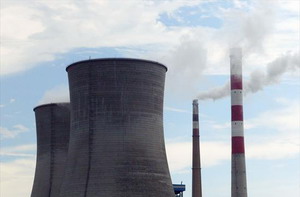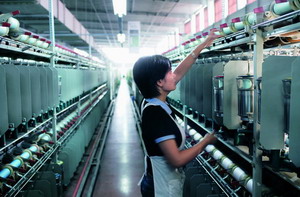Just the ticket for travelers?
Updated: 2011-08-24 10:01
By Wang Ying (China Daily)
|
|||||||||||

Wang Ying, a 39-year-old manager of an operational department at a multinational corporation, said she decided to choose the plane after the recent bullet-train accident.
That accident will obviously take some gloss off the new high-speed network as doubts are cast on its safety and punctuality. But Li believes that, once the technical hurdles are ironed out, the service will hold several advantages over the plane, including lower prices and reduced waiting times.
Experts said that although competition between the railways and civil aviation will continue, neither is capable of replacing the other.
Air China's He Li said the carrier is trying to cooperate with high-speed rail to provide passengers with a quality service. "Instead of initiating a price war that hurts both operations, we should explore constructive cooperation," he said.
Meanwhile, the Chinese government says it will construct a comprehensive transportation service system during the 12th Five-Year Plan (2011-2015) period.
Part of that plan is the "bundled ticket", which will allow travelers to take advantage of a comprehensive system and combine different forms of transport including planes, railways, subways and buses. "A single bundled ticket will enable an overseas visitor to travel easily from home to Shanghai or Beijing by air, and then take the high-speed railway to scenic spots such as the Tai Mountain in Shandong province," said the expert.
The Qinghai-Tibet Railway is a prime example of the way in which different methods of transportation can complement one another. Following the opening of the railway in 2006, the passenger flow for flights between Lhasa, the capital of the autonomous region, and Qinghai doubled. "Many travelers choose to take the railway on the way to Tibet, and then take the plane on the way home," said the expert.
High-speed rail will also provide support for, instead of undermining, civil aviation, according to China Eastern's Luo. For example, passengers who want to travel around the Yangtze River Delta region in areas such as Nanjing in Jiangsu province and Hangzhou in Zhejiang, will travel to Shanghai by train and then continue their journey by air.
Furthermore, during extreme weather conditions, the railways can be used to transport air passengers and vice versa.
Li said the cooperation is available in theory as "one plus one equals more than two" because of the advantages provided by utilization of the two. The aviation network will bring visitors to China from every corner of the globe, and the denser railway network will take them closer to their destinations in the country, said Li.
However, the railways and civil aviation belong to different ministry departments: MOR is in charge of the railways, while civil aviation is under the management of the Ministry of Transportation. Furthermore, the airports are administrated by local governments. "So cooperation fraught with difficulties and will require more negotiations between different departments," he said.
Coordination is one of the biggest problems facing the travel industry. Luo noted that the existing high-speed railway system cannot play a role similar to that of the aviation check-in system. "The data of the high-speed railway ticket office are not so accurate, and no one is asked to check the information in the ticket check," he said.
Experts said negotiations will be difficult if the interests of the airlines, airports and railways are contradictory. Besides, most railway stations for the high-speed rail are situated long distances from downtown city areas and the airports.
Beijing's South Railway Station is the hub for a number of the high-speed rail services, but is situated several kilometers from the capital's international airport, and there is no rail link between the two, making coordination difficult.
Shanghai's Hongqiao traffic hub is probably the only one in China in which the airport and railway station are situated close enough to each other to make cooperation possible, added Li.
Related Stories
More high-speed trains slow down to improve safety 2011-08-23 14:34
Taking a dream train journey, after 20 years 2011-08-17 09:57
Chinese airlines hike fuel surcharge to record high 2011-08-02 15:26
China's civil aviation reports profit surge 2011-01-12 10:00
- China's software industry revenue up 31.4% in July
- China aims to start yuan FDI trial from Sept
- China's Renren signs agreement with MSN
- China should stick to prudent monetary policy
- China grants QFII status to BlackRock, Amundi
- German group drawn by China's vehicle ambitions
- Overseas energy deals 'require caution'
- Time running out for third-party payment firms













